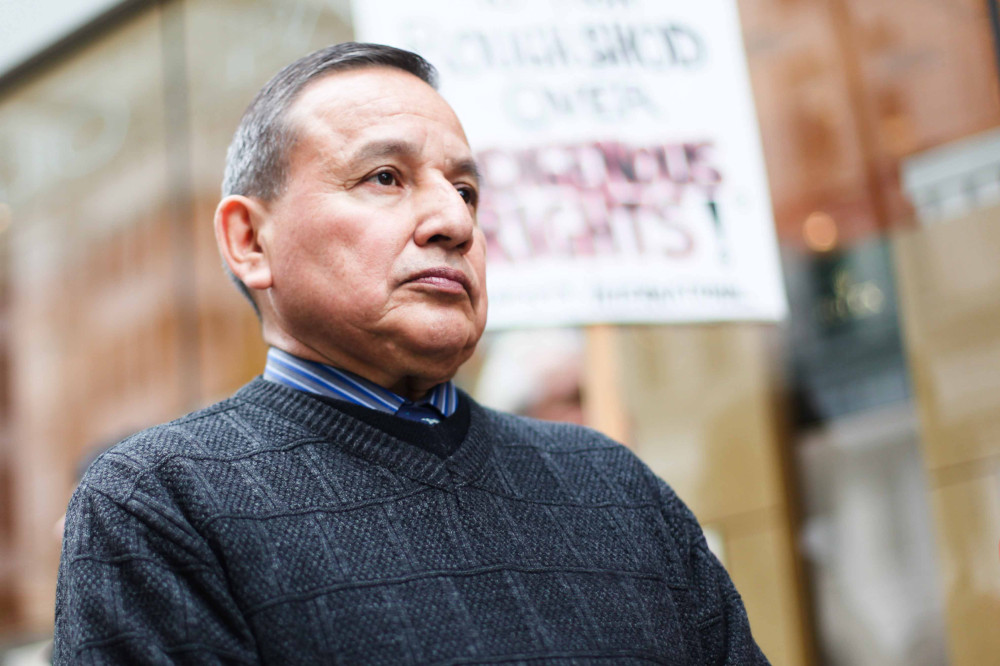RCMP has yet to respond to nearly year-old report critiquing unlawful conduct with Indigenous Peoples

The RCMP has yet to respond to a nearly year-old report that criticizes the use of broad exclusion zones and makes multiple recommendations for the force in light of unlawful police conduct with Indigenous land defenders.
This revelation was made in a letter from the Civilian Review and Complaints Commission, an independent organization that deals with public complaints about the RCMP.
Chairperson Michelaine Lahaie wrote the letter in response to a complaint about the RCMP checkpoint and exclusion zone in northwestern B.C., established as part of a police operation on unceded Wet’suwet’en territory to clear a service road for pipeline company Coastal GasLink.
The checkpoint and exclusion zone were criticized as overly broad, arbitrarily enforced, and infringing on individual liberties in the complaint submitted by the BC Civil Liberties Association, Wet’suwet’en hereditary chiefs, and the Union of BC Indian Chiefs.
“I also consider the issues raised in your correspondence to be of significant public interest,” wrote Lahaie.
She then explained she was not undertaking a public interest investigation because of a similar investigation into RCMP conduct in New Brunswick during the 2013 enforcement of an injunction against a blockade by Elsipogtog First Nation members and supporters opposed to shale gas extraction.
That investigation resulted in a 116-page report with 12 recommendations for the police, “particularly with regard to Indigenous-led protests,” wrote Lahaie.
The CRCC sent its report to the RCMP in March 2019. The report has not been made public because the police have yet to respond.
In that report, according to Lahaie, the commission found the following:
- the RCMP had no legal authority to require individuals to produce identification at stop checks,
- the RCMP had no legal authority to engage in “general inquisition” of individuals at stop checks,
- the RCMP had no legal authority to conduct routine physical searches,
- the RCMP could justify restrictions on movement only “in specific, limited circumstances,” and
- the RCMP can establish “buffer zones” only within “the parameters detailed by the courts” — anything “outside of these bounds is impermissible in a free and democratic society.”
Lahaie also said the commission recommended that RCMP members receive training in “Indigenous cultural matters and sensitivity to Indigenous ceremonies and sacred items.”
Impeding Wet’suwet’en on their own territory
“We have been prevented from accessing our territory,” said Molly Wickham at a press conference today. Wickham is a spokesperson for the Gidimt’en clan who holds the traditional Wet’suwet’en name Sleydo’.
“I’ve been prevented from accessing my civic residence for a period of time, criminalized as Wet’suwet’en while non-Wet’suwet’en were allowed access to our territory.”
“It is essential to the national interest that police behaviour be corrected.”
Wickham noted that although the exclusion zone has been removed, “people need to be aware the RCMP continue to target Wet’suwet’en people” and “continue to unlawfully arrest and detain people on our territory. One person yesterday was arrested and detained for getting firewood for the camp.”
“The RCMP have clearly not yet vacated or officially engaged with our hereditary chiefs and governance. It’s suspicious to me that RCMP and government would claim to have met our conditions without talking to our hereditary chiefs. It seems like a media strategy.”
The Wet’suwet’en hereditary chiefs have called for the withdrawal of the RCMP and Coastal GasLink personnel from their territory as a precondition for a meeting with Premier John Horgan and Prime Minister Justin Trudeau.
‘Unacceptable’ that police have not responded to report
“The report is absolutely explosive. It’s shocking and shameful,” said Grand Chief Stewart Phillip, president of the Union of BC Indian Chiefs, at the press conference.
Mary Ellen Turpel-Lafond, a law professor at the University of British Columbia and director of the Indian Residential School History and Dialogue Centre, agreed.
It is “troubling on a number of fronts,” she said. “It is essential to the national interest that police behaviour be corrected, to protect the rights of First Nations people.”
“It is unacceptable that a First Nations person who makes a complaint has to wait seven or eight years for a response. It is not meaningful, it is not timely, it is not appropriate.”
The police have “a long and very troubled history” with First Nations, said Turpel-Lafond, describing the period of residential schools when children were taken from their parents, who would be arrested if they protested.
The RCMP was established by Canada’s first prime minister, John A. Macdonald, to control and remove Indigenous Peoples from their land. Macdonald was inspired by the Royal Irish Constabulary, a paramilitary police force used by Britain against the Irish. SOURCE







